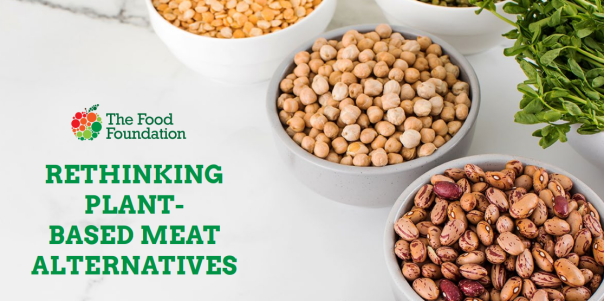
The Food Foundation says there are an increasing number of people changing their diets in order to play their part in tackling climate change and to be healthier. With livestock accounting for 15% of total greenhouse gas emissions globally and the UK eating a third more meat than the global average, reducing meat consumption is a crucial part of this.
The study found that all plant-based meat alternative categories come with significantly reduced greenhouse gas emissions (GHGEs) and water footprints compared to meat. All plant-based meat alternative categories contain fewer calories, lower levels of saturated fat and higher levels of fibre on average compared to meat products.
The selected products included:
- Processed new generation plant-based meat alternatives: Beyond Meat, THIS branded products, Quorn, Linda MacCartney, Vivera and retailer own-brand plant-based burgers
- Processed traditional plant-based meat alternatives: tofu, tempeh, seitan, historically eaten in areas such as Southeast Asia
- Less processed plant food meat alternatives: Beans and grains which are a natural source of protein, including some ready-to-eat and tinned bean and grain products
Less processed alternative proteins deliver the best ‘bang for buck’ on health and the environment with lower amounts of saturated fat, calories and salt as well as having the highest amount of fibre of all products.
Processed new generation plant-based meat alternatives contain 18% more salt than meat, the highest level of salt of all three plant-based alternative categories, and three times as much salt as processed traditional plant-based meat alternatives like tofu have.
The number of new generation alternatives far exceeds that of more traditional options. The proportion of ultra processed foods (UPFs) within each plant-based meat alternative category varies considerably – with all the new generation products qualifying as UPFs but a number of traditional, less processed plant-based alternatives available for consumers looking to reduce the amount of ultra-processed food in their diets.
Rebecca Tobi, senior business and investor engagement manager at The Food Foundation, said: “Despite increasing public concern about the healthiness of many plant-based meat alternatives we found a huge variety of options for consumers looking to eat less meat.
“While plant-based alternatives that mimic the taste of meat can play a really useful role in helping people to shift towards more plant rich diets and come with significant environmental benefits, alternative sources of protein to meat such as beans perform strongly compared to both meat and other plant-based meat alternatives.
“They are also the most affordable alternative to meat by quite some way. There is a huge opportunity in the UK to get people eating more beans, as an affordable, healthy and sustainable alternative protein source. They’re a win-win-win for environmental, health and equity outcomes.”